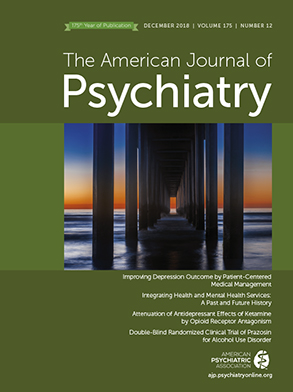Risk of Treatment Failure: Response to Ghosh and Noble
We used the use of clozapine as a proxy for treatment resistance and the use of long-acting antipsychotic injection as a proxy for poor treatment adherence. These indicators suggested that the late discontinuers had a higher rate of treatment resistance compared with early discontinuers, while no signal was observed for poorer treatment adherence among late compared with early discontinuers. Therefore, the results suggest that the higher risk of relapse among late compared with early discontinuers may be attributable to more severe illness.
Since clozapine’s adverse effects, including metabolic syndrome, develop over a long period and the accurate cumulative exposure time for specific antipsychotics was not available in this analysis, the outcomes of treatment failure were not adjusted by using this rather crude proxy (at least one filled prescription of clozapine) as a covariate. However, we want to emphasize that the aim of this study was not to investigate clinical characteristics associated with treatment failure but simply to reveal how the risk of rehospitalization or death evolves after discontinuation of antipsychotic treatment in an entire nationwide cohort of first-episode patients.
Information & Authors
Information
Published In
History
Keywords
Authors
Funding Information
Metrics & Citations
Metrics
Citations
Export Citations
If you have the appropriate software installed, you can download article citation data to the citation manager of your choice. Simply select your manager software from the list below and click Download.
For more information or tips please see 'Downloading to a citation manager' in the Help menu.
View Options
View options
PDF/EPUB
View PDF/EPUBLogin options
Already a subscriber? Access your subscription through your login credentials or your institution for full access to this article.
Personal login Institutional Login Open Athens loginNot a subscriber?
PsychiatryOnline subscription options offer access to the DSM-5-TR® library, books, journals, CME, and patient resources. This all-in-one virtual library provides psychiatrists and mental health professionals with key resources for diagnosis, treatment, research, and professional development.
Need more help? PsychiatryOnline Customer Service may be reached by emailing [email protected] or by calling 800-368-5777 (in the U.S.) or 703-907-7322 (outside the U.S.).

